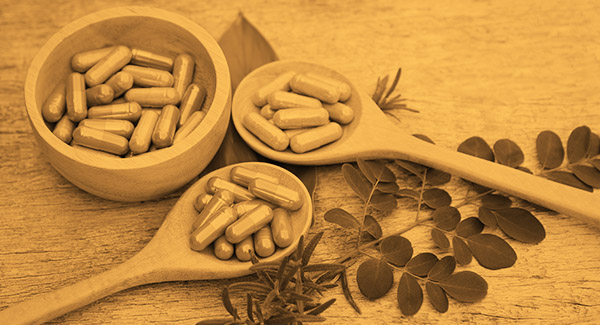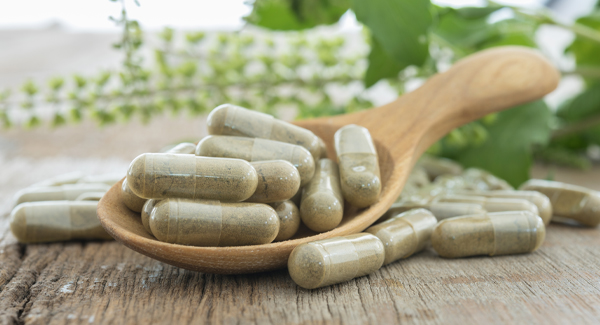Using Vitamins and Minerals to Fight Viruses and Support Immunity
There is no pill or food that can prevent COVID-19, but certain supplements may help your ability to stay healthy or recover faster.
By Linda Rath
With the world’s attention focused on COVID-19, the illness caused by the new coronavirus, people with arthritis might wonder if there is something that protects them from getting infected. The internet has many remedies and recommendations – many unproven and a few downright dangerous. But some have potential benefit, whether you’re already sick or trying to stay healthy. This is especially true of vitamins and minerals, which are essential in supporting a healthy immune system. While no pill or food can prevent COVID-19, certain supplements may help your ability to stay healthy or recover faster.
Talk to your doctor before starting any vitamin, mineral or supplement – especially at higher than recommended daily doses – to make sure it is not contraindicated for any health conditions you might have and won’t interfere or interact with your current medications.
Not all supplements are created equal when it comes to immune support. This article breaks down which vitamins have research behind them and which ones may not deliver the same benefit. It gathers expert perspectives, so you don’t have to hunt for answers. Help keep this information available with a gift now.
Vitamin D:
Vitamin D, commonly known for its role in bone health, also helps make proteins that kill viruses and bacteria, especially in the respiratory tract. In a 2019 analysis of 25 randomized controlled trials involving more than 11,000 patients, vitamin D supplements significantly reduced respiratory infections in people deficient in the vitamin and lowered the risk in those with normal levels. Benefits were greatest when people took vitamin D daily or weekly, rather in a single large dose, echoing the findings of other studies. Tod Cooperman, MD, president of the independent supplement testing company, Consumerlab.com, recommends 2,000 IU (50 mcg) of vitamin D a day, preferably in liquid form. But Daniel Small, MD, a rheumatologist with the Mayo Health System in La Crosse, Wisconsin, says many people with rheumatoid arthritis, lupus, and other autoimmune diseases may need to take much higher doses under a doctor's supervision.
Vitamin C:
Nobel Prize-winner Linus Pauling championed vitamin C as a cold cure decades ago, but research remains mixed. Some studies suggest that taking 500 mg twice daily can help prevent colds but not cure them. Other research has found that vitamin C may not prevent viral respiratory infections but can speed recovery. Not in dispute: Vitamin C is vital for the function of leukocytes – white blood cells that help fight infections – and you need a lot more when you’re sick. There’s some evidence that it may help with certain symptoms that develop in critically ill patients with COVID-19 (such as acute respiratory distress syndrome and sepsis). Doctors in China are experimenting with intravenous vitamin C for patients with moderate to severe COVID-19. While vitamin C doesn’t build up in your body, a daily dose of 2,000 mg or more could cause diarrhea.
Zinc:
Decades of research have shown that zinc lozenges can shorten colds by 20% to 40%. This seems to hold true for both low and high doses – 80 mg to over 200 mg a day – and for different forms, including gluconate, sulfate, acetate and picolinate. Zinc works best if you start it at the first sign of symptoms. Doctors are taking a closer look at zinc for COVID-19, too. Pathologist and virologist James Robb, MD, who was among the first to study coronaviruses, writes that zinc can prevent them from “multiplying in your nose and pharynx.” But he also stresses that taking zinc is no “guarantee against being infected by the virus.” Other doctors say there’s not enough evidence to know for sure.
Zinc supplements come in lozenge, pill or liquid form. Consumerlab.com recommends taking a lozenge containing 13 mg to 23 mg zinc every two hours throughout the day for no more than a week if you have a cold. (Those without symptoms may not get any benefit.)
Too much zinc can have the opposite effect and blunt your immune response and can cause side effects such as nausea, diarrhea and headache. The National Institutes of Health sets the daily maximum limit at 40 mg day, unless being advised to take more under medical supervision. It’s also important to talk to your doctor before supplementing with zinc – too much can interact with various prescription medications. If your doctor gives you the go ahead, avoid zinc nasal spray, which a decade ago was linked to loss of smell, and choose lozenges that don’t contain citric acid, which can diminish its effectiveness.
Polyphenols:
Thousands of different chemicals known as polyphenols are found naturally in plants, including most fruits and vegetables as well as coffee beans, cocoa, nuts, green tea and extra virgin olive oil. Polyphenols are anti-inflammatory and may protect against a broad range of health problems, including type 2 diabetes, heart disease, cancer and disorders that affect the brain, like Parkinson’s and Alzheimer’s disease. In lab (not human) studies, they’ve also been found to kill coronaviruses. One polyphenol – quercetin – proved especially effective against infections similar to COVID-19. Quercetin seems to work by preventing viruses from entering cells. A clinical trial of quercetin is underway in China.
In human research, polyphenols from green tea and blueberries helped prevent viral respiratory infections in athletes. You can buy polyphenol supplements or specific types, such as quercetin, but Dr. Cooperman at Consumerlab.com says it’s not yet known what type of quercetin or dose might be effective against the new coronavirus.
Potassium:
This mineral won’t prevent COVID-19 but could play a life-saving role in treating it. The new coronavirus causes low potassium levels because it blocks an enzyme called ACE2 that regulates blood pressure by balancing potassium and sodium. Potassium loss can be especially severe in COVID-19 patients with heart disease or high blood pressure. If you have mild respiratory symptoms, potassium probably won’t help. Still, only about 2% of American adults get enough. Experts recommend getting potassium from food instead of supplements, which could be dangerous for certain groups of people, including (but not limited to) those with kidney or heart disease and those who take particular blood pressure medications. Potatoes, lentils, beans, squash and dried fruit are good sources.
Probiotics:
There’s evidence in both animals and humans that probiotics containing Bifidobacterium and Lactobacillus strains can improve your immune response to viruses and reduce the severity and duration of respiratory infections. In a Cochrane review of 12 randomized controlled trials, probiotics cut the number of respiratory infections nearly in half. When people did get sick, they recovered almost two days sooner than those who didn’t take probiotics – however, the authors caution many of the trials were poorly conducted. You can find probiotics in kefir, yogurt and fermented foods like miso and sauerkraut (look for unpasteurized products sold in the refrigerated sections of your supermarket). But supplements are probably the best way to get the amount needed to fight infections. Many probiotics are heat-sensitive and should be refrigerated, both at home and in the store where you buy them. Look for brands that have been independently tested by a third party for purity and potency.
Supplement Wisely
When shopping for supplements, it’s important to remember that not all are created equal. Unlike drug manufacturers, the Food and Drug Administration (FDA) does not require supplement makers to prove their product is safe or effective before selling them. For tips on choosing safe, quality supplements, click here.
Again, always talk to your doctor before starting a new supplement. Your doctor can help you choose the right product and dose as well as help you avoid any potential medication side effects.
You learned which vitamins show promise in supporting immune health and why context matters. That kind of clear, science-informed guidance can help others feel more confident in their choices, too. Please consider supporting this work.

Stay in the Know. Live in the Yes.
Get involved with the arthritis community. Tell us a little about yourself and, based on your interests, you’ll receive emails packed with the latest information and resources to live your best life and connect with others.



